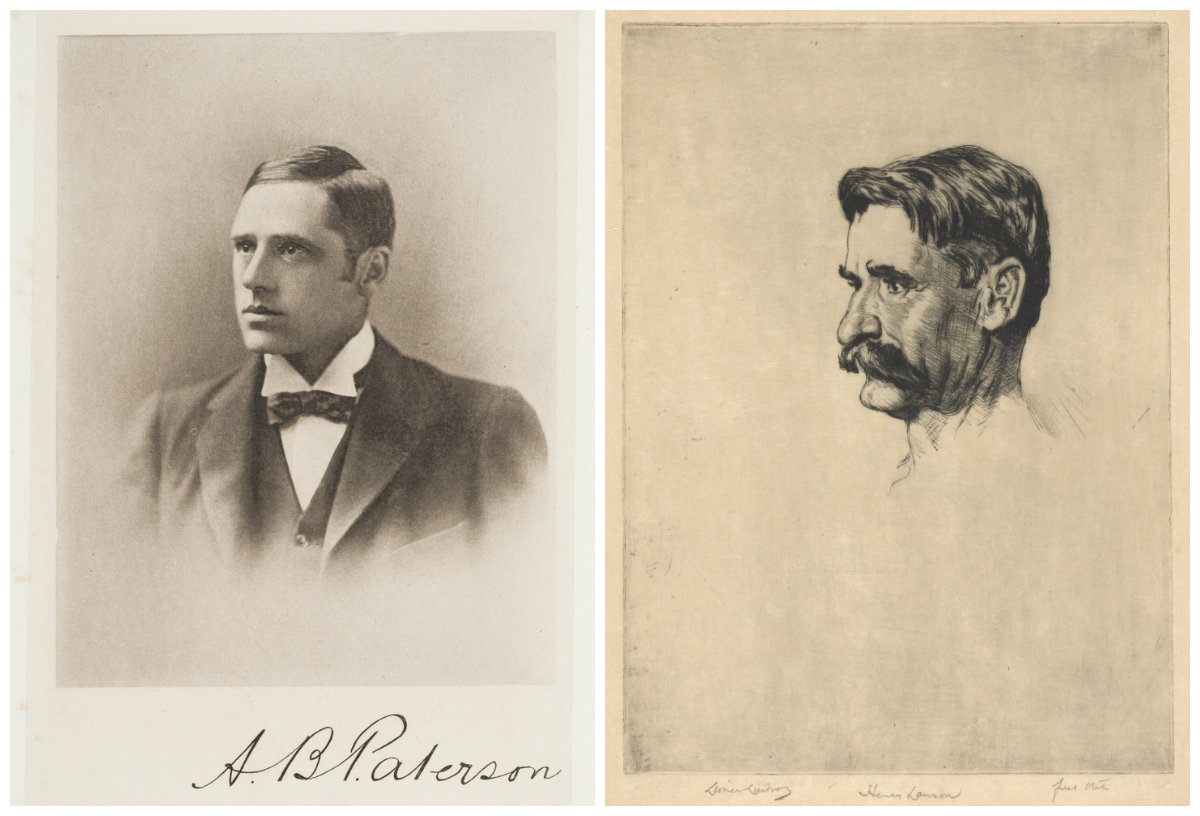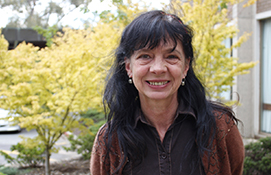AustLit
-
The author acknowledges the traditional custodians of the land on which The University of Queensland St Lucia campus is situated, the Turrbal/Jagera people, and pays respect to their Elders past and present.
Readers should be aware that this exhibition contains culturally sensitive material, including images of and information about people who have died.
-
This exhibition has been designed in partial fulfilment of a 2017 Postgraduate Fulbright Scholarship by Travis Franks, a PhD candidate in the Department of English at Arizona State University in the US. Travis's dissertation work critiques notions of settler belonging in the US and Australia through the concept of settler nativism--that is, how settlers imagine their sense of belonging against Indigenous and immigrant populations.
Here you will find an introduction to settler colonial theory and contemporary settler colonial literature. This exhibition is intended to survey the major and minor authors, works, and ideas involved with settler colonial writing in Australia, and, to a lesser extent, the United States, since the 1990s.
In addition to the overview statements on this page, you can click on other tabs to see a timeline of publication dates in historical context, a glossary of common terms, an annotated bibliography of primary and secondary sources, brief discussions of themes and motifs useful for student researchers and teachers interested in including settler colonialism in their curricula, and information about comparative settler colonial studies between Australia and the US.
-
Settler colonialism refers to a specific form of colonisation in which non-Native populations invade Indigenous lands and establish settlements that are intended to be permanent. While these colonisers originate from an imperial metropole (England, for example), they also eventually break away in order to form a new independent nation-state. Most forms of colonisation rely on the production of natural resources found in or on Indigenous lands. Settler colonialism is unique in that, in addition to profiting from these resources, colonisers also claim lasting ownership of the land itself. This means, in turn, that, rather than conscripting the Indigenous populations of conquered lands into forced labour, settlers primarily dispossess Indigenous peoples of their lands and attempt to remove them altogether through relocation, assimilation, or genocide. Also unique to settler colonialism, then, is the importation of another exploited work force through compulsory convict labour, indenture, serfdom, or slavery. In turn, racism, gender, class and other social hierarchies are essential for determining who is empowered–and who is not–within and by the settler state.
While settler colonialism represents a similar framework in the histories of Australia, New Zealand, Hawaii, Canada, the United States, Israel, and South Africa, no two settler projects are exactly the same, even as they often share similar or overlapping features. These parallels and departures are grounds for comparative studies of settler societies and their cultural productions, such as national literatures.
Not surprisingly, some of today's most influential theorists critiquing settler colonialism hail from Australia: Patrick Wolfe, Lorenzo Veracini and Aileen Moreton-Robinson are internationally recognised for their intellectual contributions and debates.
-
While an absolute definition of settler literature may remain elusive and evolving, it is generally thought of as a body of texts distinguished by the nation-state in which (or about which) it is written and distinguishable from post-colonial literatures [for more on this, see Tony Hughes-d'Aeth's article Cooper, Cather, Prichard, 'Pioneer' : The Chronotope of Settler Colonialism].
In simplest terms, settler literature is storytelling that emerges out of settler colonialism, which is a specific form of colonialism occurring or having occurred in certain geographic locations. Nation-states formed out of settler colonial projects include the United States, Canada, South Africa, Israel, New Zealand, and Australia. It is important to note that, from Indigenous perspectives, settlement (or, put another way, invasion) is ongoing, meaning that settler colonialism and settler literature are still active today. That is, as Lorenzo Veracini has said, we find ourselves now in The Settler Colonial Present. In other words, while we rightly think of the works of A. B. Paterson and Henry Lawson (both pictured above) as settler literature, there are rich potentials for analysing contemporary literature as part of the same process that shaped those seminal works of Australia's national literary tradition. An example of precisely this kind of comparison is included in this exhibition, tracking Lawson's short-story The Drover's Wife through twentieth- and twenty-first century Australian theatre.
Some may consider settler literature to refer strictly to texts produced by settlers at the time of settlement. On the other hand, because settler colonial projects involve multiple generations and several groups–Indigenous peoples, immigrants (voluntary and involuntary), migrants, and settler populations, we might also consider how texts by groups marginalised by settler colonialism shape settler colonial projects, nonetheless. Indeed, many of the most influential creative and scholarly texts on settler colonialism and decolonisation have been written by authors who are not themselves settlers. For that reason, this exhibition presents settler literature as a cohesive cultural production representing a variety of perspectives on the processes of settlement and ongoing colonisation.
As a discipline with specific methodologies, settler literary studies is still very much taking shape. In his formative essay 'The Anxious Proximities', Alan Lawson asks several important questions about the nature of settler literature which suggest analysis strategies: 'What kinds of stories does the settle tell? Is it possible to think of a cultural narratology, a cultural rhetoric? How do we find a way of talking about the mode or manner in which these settler stories function?' Scholars such as Lawson, Larissa Behrendt, Jeanine Leane, Tony Hughes-d'Aeth, Odette Kelada, Anna Johnston, Tamara S Wagner, Mishuana Goeman, and Alex Trimble Young have made significant contributions to the field, however.
This exhibition demonstrates just one way of envisioning what contemporary Australian settler literature might mean. In this case, contemporary generally refers to works published since 1990. This particular scope reflects monumental political and cultural events that have determined Australia's settler colonial present: court cases over Native Title, reconciliation and apology agendas, and identity politics. These factors helped shape a unique bibliography that brings together well- and lesser-known works of creative writing, from internationally best-selling novels to poetry collections from small printing houses. Click here to see the publication dates of major works in Australian creative writing placed on a timeline along with important historical events of the last thirty years. There are also central themes and motifs that link these works: captivity, belonging, representations of blackness and frontier violence. These are discussed in greater detail here. These themes and motifs, along with the section on connections between Australian and US settler literatures make up a number of resources for teachers who are interested in promoting critical, comparative discussions amongst their students.
-
'Though clearly a politically fraught task, confronting settler narratives is a crucial responsibility in coming to terms with our entangled pasts and mediating multiple interests in the places we now share and each call home.' Margaret D. Jacobs in White Mother to a Dark Race : Settler Colonialism, Maternalism, and the Removal of Indigenous Children in the American West and Australia, 1880-1940
-
'My intention is not to advocate or imply that . . . settler works of Aboriginal representation should not be studied. On the contrary, what motivates and excites me is the idea of more culturally grounded readings of settler and Aboriginal authored works. These literary relationships, I believe, are central to understanding the way cultural identities have been and continue to be formed and informed in Australia.' –Jeanine Leane in Tracking Our Country in Settler Literature
You might be interested in...







